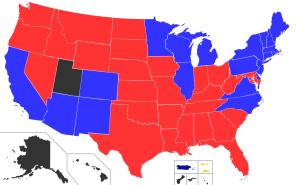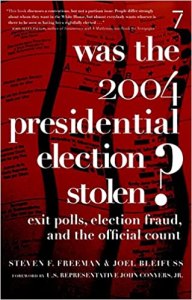Could you imagine if I lose? I’m not going to feel so good. Maybe I’ll have to leave the country…I could raise more money. I would be the world’s greatest fundraiser, but I just don’t want to do it. – Trumpus, 10/15
Existing emotional instability or psychotic tendencies may be aggravated by corticosteroids. – Warning label for Dexamethasone, Trumpus’ anti-Covid medicine.
Thank you so much for your leadership. – Diane Feinstein to Lindsay Graham, concluding the Amy Coney Barrett hearing.
I am the least racist person in this room. – Trumpus, second debate
Republican Corruption: Trumpus continued to play the old Nazi strategy, accusing his opponents of things that the Republicans themselves are doing or planning to do, especially voter fraud. He mocked Biden for vowing to “listen to the scientists”; accused him of leading an “organized crime family”; demanded his arrest along with that of Obama and the Clintons; called Kamala Harris a “monster”; insulted Dr. Fauci (“a disaster”), reporters (“criminal” and “a radical left Democrat”), CNN (“bastards”) and Michigan governor Gretchen Witmer, refusing to condemn the militia terrorists who had planned to kidnap her.
The Vice-Presidential debate revealed little other than, as Fair.org wrote, “You can’t have a real debate if one party refuses to follow the rules” – such as actually answering the questions – and moderators can’t or won’t enforce them. It did reveal that Pence – and, soon after, Amy Coney Barrett – like their boss, would not commit to supporting a peaceful transfer of power.
California Republicans installed bogus ballot drop-off boxes and refused to remove them. USPS agents raided the home of a QAnon-supporting postal worker and found a massive amount of undelivered mail. The Postal Service itself still hasn’t reversed its election mail slowdown, despite multiple court orders. Sheldon Adelson, whose company had received $700 million in tax cuts, donated another $75 million to Trumpus.
The Supreme Court: Since Amy Coney Barrett’s confirmation was a foregone conclusion, the least the Democratic Senators might have done was ask serious questions that she couldn’t avoid answering, and they didn’t. The broader issue is what a Biden presidency and a Democratic Senate might do to offset the majority of reactionaries on the court. So far, Biden has allowed Trumpus to set the terms, accusing him of planning to “pack the court.” The real issue, however, is that for three decades or more, the Republicans have done exactly that, from the Supreme down through the various levels of federal judgeships. Mitch McConnell blocked over a hundred of Obama’s nominations. This contributed to a long-term situation in which all but six of the 114 justices to sit on the court have been white men. Trumpus has filled 200 judicial vacancies with 85% white and 76% male appointees. Today, nearly 60% of all sitting federal judges are white men.
Early Voting, The Good News: The well-publicized news of Republican voter suppression tactics may cause some people to stay home in despair. But in the short run, these plans appear to have backfired, motivating vast numbers of people to vote early. Over fifty million have endured the long waits to cast their ballots in numbers that dwarf all previous elections, and it appears that the great majority are Democrats.
The Bad News: No one knows how many people leave without voting because they can’t tolerate the long lines, caused by the fact that Republicans have closed 1,688 polling places in the last six years, primarily in minority neighborhoods. Over five million Americans remain disenfranchised and unable to vote.
In several places, those who remain in line have endured insults and threats not seen since the Jim Crow era. In Memphis, a poll worker was fired for turning away early voters wearing Black Lives Matter shirts. A Miami policeman packed a gun and wore a Trumpus face mask inside a polling place. In primarily Black and Hispanic East Dallas only one in six voting machines were working. In Virginia, Trumpus thugs tried to obstruct people from entering a polling site. This was clearly a dry-run for November 3rd.
Democratic Corruption: Dianne Feinstein praised Lindsay Graham’s leadership of the Barrett hearings, going so far as to hug him. Was this an ironic gesture or just what it looked like – one old conservative acknowledging that she shares 80% of her values with another? Or, more ominously, did her hug reveal Biden’s actual priorities? In September, he had chirped, “I’m not opposed to the justice…She seems like a very fine person.” Perhaps even more ominously, it was reported than Biden was vetting various Republicans for positions in his post-Trumpus cabinet.
The role of the FBI: Trumpus attempted to smear Biden with accusations about his son Hunter in a story with so many holes that even Fox News wouldn’t touch it. FBI Director Wray dismissed it as part of a Russian disinformation campaign. Given the prevalence of fake news, especially around the Russiagate narrative, I certainly don’t know if the allegations are bogus. The point is that here – and by breaking up the kidnapping attempt on Gretchen Wittmer – the FBI is, once again, getting involved in the election. We recall James Comey’s announcement that he was investigating Hillary Clinton’s emails just eleven days before the 2016 election. No one knows what any of this means. Anyone who says they do has their own agenda. But in broader terms, it fuels my own speculation that this election – like every election since at least 1964 – is essentially nothing more than a food fight between various elements within the ruling class. These are people who agree on 95% of foreign policy issues and 75% of domestic issues. These are people who are divided into those who prefer to provoke China and those who prefer to provoke Russia.
Do either of these guys really want to be elected? For Trumpus, see his “Maybe I’ll have to Leave the country” quote. As for Biden, see anything in the “Democratic corruption” section above.
An October Surprise? These things have happened with such regularity over the years that the phrase itself has attained cliché status. Every day now, minor surprises are assaulting us, but the really big one – provoking of a military confrontation with Iran remains a strong possibility. On October 9th Trumpus bellowed to Rush Limbaugh, “If you fuck around with us, if you do something bad to us, we are going to do things to you that have never been done before!”
Some of these October surprises may or may not have swayed earlier elections. But even talking about them can divert our attention from something more profound – the November Surprise of massive computer fraud in each of the 26 states that have Republican Secretaries of State. You may want to review my argument about this in Part One of this series, or in my discussion of the 2016 election. The discrepancies between the official results and the exit polls revealed then the extent of this criminal behavior, and they will next month as well.
Hidden Trumpers? Biden signs are everywhere in my city of Oakland, along with countless BLM signs, and zero Trumpus signs. However, Trumpus did receive around 5% of the vote here in 2016. We can assume that very few of them were cast in (primarily Black) West Oakland or in (primarily Brown) East Oakland. So most of those votes came from the more affluent white neighborhoods like mine. If we assume the same 5% this time, then it follows that perhaps a fifth of my neighbors will do so, and that many of them are either afraid or ashamed to advertise their preferences – or to even tell pollsters.
Their votes of course will be meaningless in calculating California’s electoral votes, just as Biden supporters in Mississippi might as well stay home. But this does bring up the question of what social scientists refer to as social desirability bias. And opinions vary. Right-wing sites like this one quote a survey finding that 11.7% of Republicans said they would not report their true opinions on telephone polls, compared to 5.4% of Democrats.
Unsurprisingly, writers on liberal sites such as Ariel Edwards-Levy argue the opposite:
…researchers spent a lot of time in the aftermath of the 2016 presidential vote looking for evidence of a cadre of “shy Trump voters” big enough to swing an election. Most didn’t come away with much evidence…The most common version of the shy Trump voter theory rests on the idea of social desirability bias ― that a significant bloc of Trump voters was uncomfortable enough about sharing opinions with pollsters to either feign indecision or to lie about their preferences…we know that this isn’t a systematic issue for all polling on Republican candidates…If support for Trump was uniquely stigmatized, you’d expect him to outperform his polls more than other Republican candidates did theirs…Trump outperformed his estimates by an average 1.4 percentage points in 2016, compared with a virtually identical 1.3 points for GOP Senate candidates.
Jonah Goldberg concurs:
A postmortem by the polling industry went looking for significant numbers of SMAGAs and came up empty. If people were afraid to tell the truth to pollsters, there should have been a gap between results from polls conducted by humans and machines. There wasn’t.
Pollsters long ago debated the possibility of a “Bradley effect” in biracial elections, but conclusions are conflicted.
Can hidden Trumpers explain the discrepancies between the exit polls and the official results? Perhaps in Oakland, but not in most national elections for the last twenty years, unless we posit that Republicans have been dishonest with pollsters since long before Trumpus. A web search found little or no mention of “hidden Romney voters”, “hidden McCain voters” or “hidden Bush voters”, yet similar poll discrepancies were reported in all those elections (especially in 2004). And most certainly not in the 2020 Democratic primaries, where (as I showed in Part Three) these same discrepancies appeared between Biden and Sanders in state after state.
Why am I dwelling on this? Because this was the way pollsters explained the discrepancies in 2016, when the Democrats gave a hundred million people no reason to vote for them, and it is the only argument against outright computer fraud, despite anecdotal statements by Democrats who saw their electronic votes switching to republican. (To be fair, Republican voters claimed exactly the opposite.)
After Trumpus’ electoral college victory I asked: Why, despite the polls favoring Clinton, did the vast majority of high-rolling, last-minute gamblers bet on Trump?
Yes, this was reported in the mainstream media, but no one seems to have paid it much attention, except for other gamblers…Did they think that the FBI revelations would sway large numbers of voters? Or did they know that millions of people would not be able to vote – or that their votes would not be counted? We might also ask, as Fitrakis and Wasserman do: “Those who dismiss such warnings as ‘conspiracy theory’ might confront this simple question: ‘How will the electronic vote count in the 2016 election be verified?’ The answer is simple: ‘It can’t be.’
There will most certainly be a November surprise, although it may not be large enough to overcome Biden’s lead, maybe only enough to ensure GOP dominance at local levels. If it does cause Biden to lose, the Dems and the MSM will blame the Left, and they will point to silent Trumpers to explain the inevitable poll discrepancies. Why won’t they bring up computer fraud? Because they do it themselves when they can get away with it. For some deeply insightful – and darkly funny – insight into whom to actually blame, read Lee Camp’s “Top 10 People to Blame if Joe Biden Loses (It’s Not The Left)”.
The polls, as we all know, show Biden with a large lead, and most gamblers agree. Quite a few of them, however, seem to be happy taking the odds. On this site, they’re betting on Trumpus. What do they know that we don’t?
I can’t end on such a sour note, so here’s Rebecca Solnit on the difference between optimism and hope:
The tricky thing about hope is to not confuse it with optimism. Optimism is confidence that you know the future and it requires nothing of you. It’s a mirror image of pessimism, which likewise assumes it knows the future, only pessimism’s future is dismal and not up to us either. Hope is a sense of possibility within the uncertainty of a future that does not yet exist, but that we are making by our actions…I’ve modified the slogan, hope for the best, prepare for the worst to: Hope and work for the best (and also be prepared to wrestle with the worst if it arises). You have to believe in the worst to diminish its chances of coming to pass. Maybe this time around we believe it because to some degree we’ve lived it.


